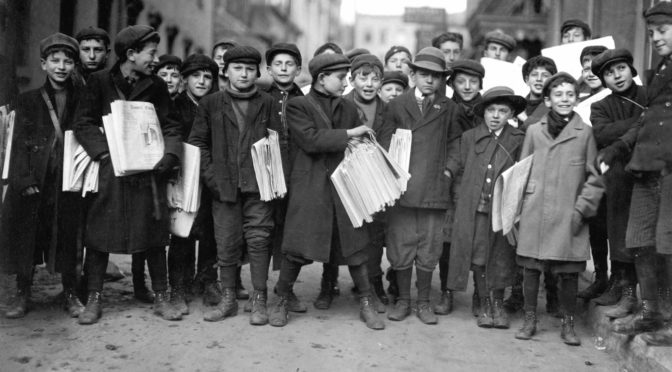 |
| Newsboys in New York City, circa 1899. In the Penny Press Era, newspapers could not have survived without them. |
READ The Lost Meaning of 'Objectivity' by the American Press Institute. You should bookmark their site as a rich source of reliable information from the perspective of professional journalists and veteran educators associated with the Committee of Concerned Journalists.
SKIM Re-Thinking Objectivity by Brent Cunningham at Columbia Journalism Review. This article cause a long-lasting controversy and debate among professional journalists and educators, and it's worth considering where you stand in this debate: Because no human being can be 100% objective, does that mean journalists should stop trying in their reporting? If admitting that this is true, should journalists see their work less as neutral reportage and more as partisan activism? (The word "partisan" doesn't apply only to politics but can mean taking a side in any issue, situation, debate.)
TIMELINE Let's brainstorm a timeline in class to see how earlier eras in journalism might inform and infuse journalism today.
WATCH Let's watch this fascinating short documentary about muckraker extraordinaire Upton Sinclair — while considering 1) the interaction between journalists and politicians, 2) the "proper" role of journalists vis-a-vis politics, and 3) the ideal of objectivity when confronted with political realities of a given moment or situation. As you watch, consider: Did Sinclair do the right thing here? Did his actions as a political actor betray his ability to be objective as a journalist in the future? Or did his objectivity during years of public-interest reporting endear him to the public at a moment that demanded he drop the pretense of objectivity for the public good? And what about the actions of other journalists in response to his foray into politics? What a tangled we we weave, indeed.
No comments:
Post a Comment